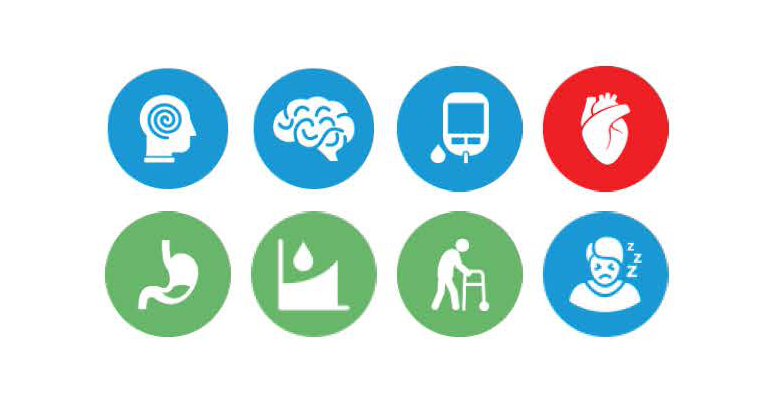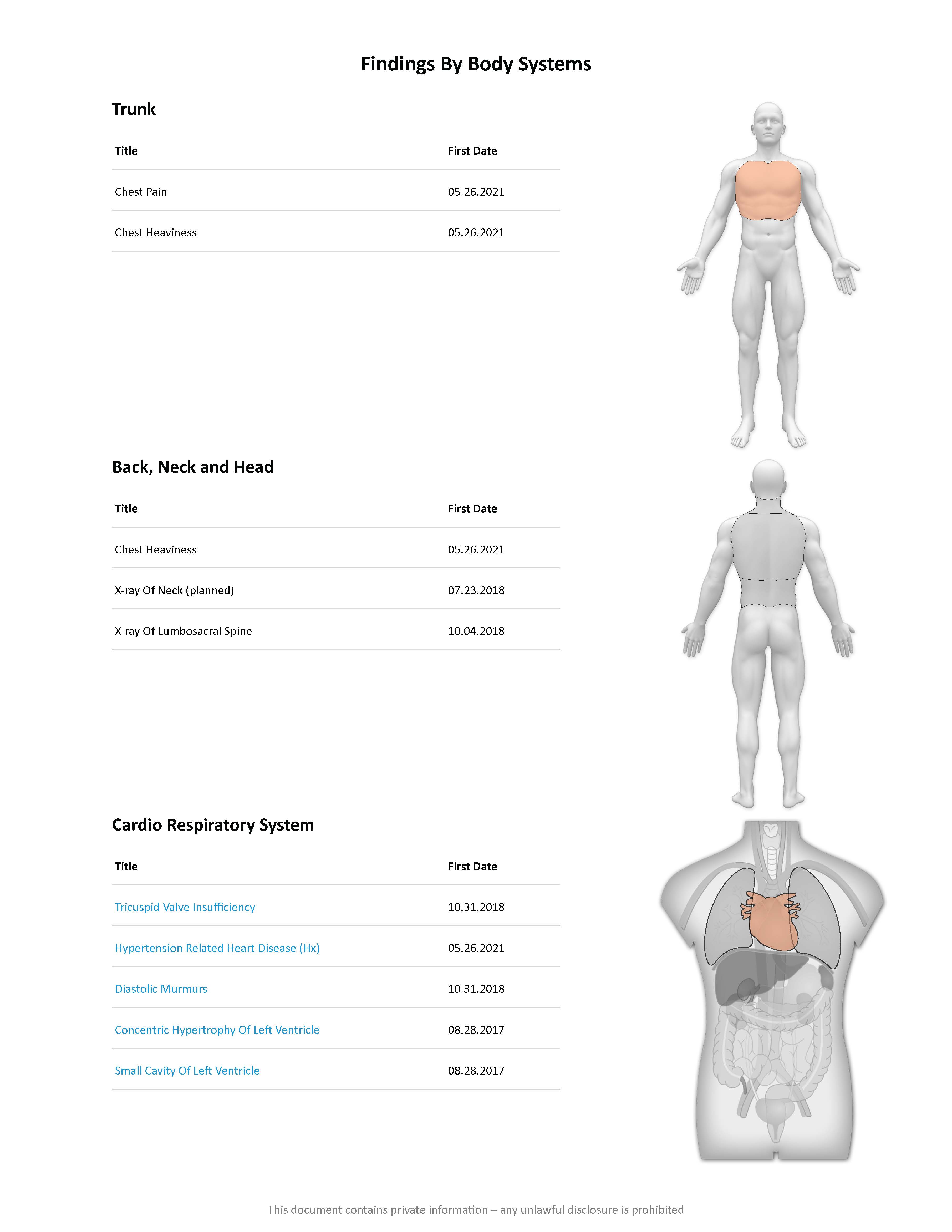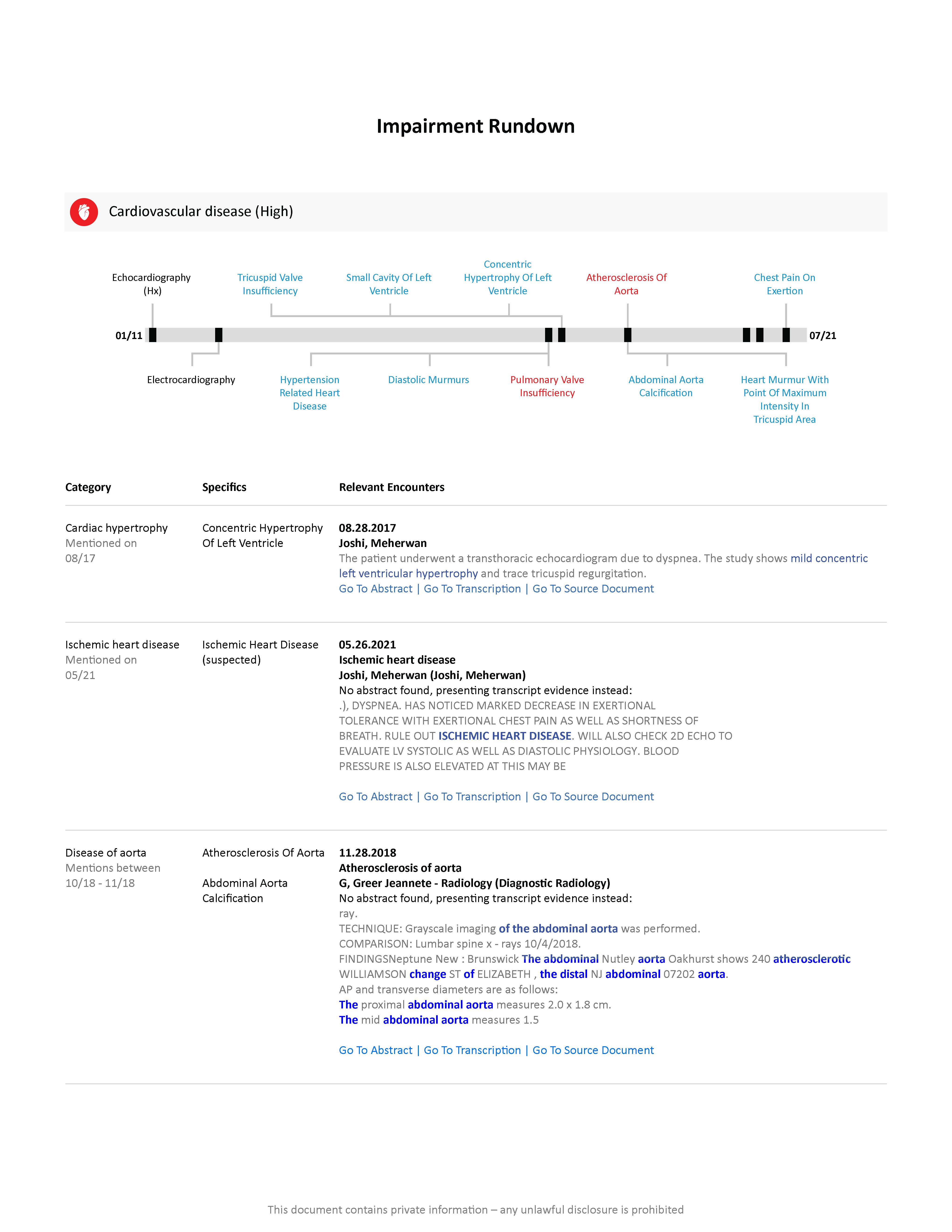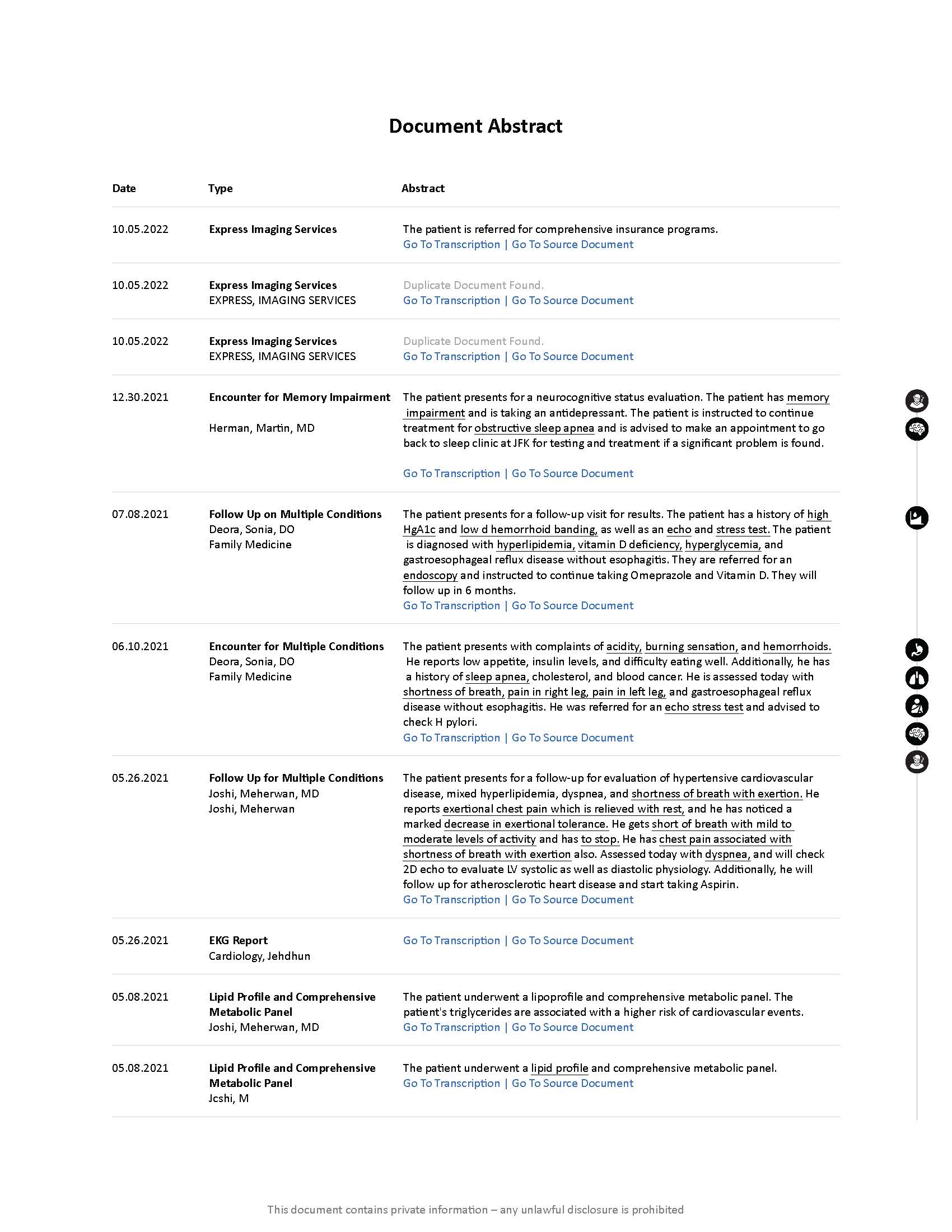Reviewing Your First Summary
Welcome to your first summary! We’ve designed this guide to help you easily understand and navigate your document summary. Follow along to make the most out of your summary experience.
Summary Structure
This document is designed to be used like an encyclopedia, so there’s no need to read it from start to finish. As you become more familiar with the summaries, you’ll find it much easier and faster to navigate through and locate the information you need.
Case Overview
Please refer to the “How to Navigate Your Summary” guide for detailed instructions on setting up Adobe Reader for the best navigation experience.
The Case Overview section gives you a snapshot of the most important details of your case. Start by looking at the Summary Date to know when the summary was created. The Case Name helps you identify your specific case among others.
Next, you’ll find the Total Pages, which shows the number of pages summarized, along with the date range of the documents. The section also indicates the Amount of Handwritten Pages, including forms and other handwritten documents.
For patient information, you’ll see:
• Name
• Date of Birth
• Sex
• Key Decision Date
• When uploading your case click on the “Advanced Setting” link to enter the Key Decision Date.
• This date will appear on timelines, and within the Findings by Body System section to segment the history for easier review.
We use Impairment Icons to provide a quick visual of the patient’s condition severity. These icons are color-coded for easy identification, with the top 8 impairments listed here.

Impairment icons
Tip: Clicking on an icon will link you directly to the detailed impairment section.
Case Summary
The Case Summary provides a generative summary of the entire case, giving you a comprehensive overview.
Tip: Click on underlined text to be directed to the source document where the condition or event is mentioned.
Visual Elements
We use Boxes to highlight important points and key highlights like:
• Occupation
• Hand Dominance
• Habits (Most recent mention)
• Tobacco
• Alcohol
• Marijuana
• Substances
• Body Measurements (1 year average before summary date)
• BMI
• Weight
• Height
The Timeline provides a visual representation of standout conditions and events throughout the case.

The Timeline
Tip: Hover over an event on the timeline to see a pop-up list of dates when the event or condition was mentioned. Clicking on an event will take you to more details in the summary.
Chronological Overview
In the Chronological Overview, you will find a list of conditions and events with the dates of their first occurrences. This helps you track the progression of the patient’s condition over time.

The Chronological Overview
Additional Handwritten and Forms Findings
This section lists mentions extracted from handwritten documents and forms, providing more context to the patient’s condition and history.

Reviewing Handwritten Pages
Occupation & Avocation
Here, you will find details about the patient’s job and hobbies, which can provide insight into their lifestyle and possible implications for their condition.
Family History
The Family History section outlines conditions associated with the patient’s family history.
Findings by Body System
This section visually represents the injuries or conditions found on the body. We highlight the first mention of each and use the Key Decision Date to indicate whether it was present before or after that date.
Available only in the following Claims Type Cases:
• Bodily Injury Cases
• Workers’ Compensation
• Disability and Long-Term Cases
• Mass Tort

Findings by Body System
Impairment Rundown
The Impairment Rundown offers a detailed list of impairments with their corresponding severity levels. Each category includes its own timeline and additional details such as:
• Lab Results
• Family History
• Complications
• Medications
• Signs and Symptoms
• Associated Conditions
• Procedures
• Specialist Visits
• Other related events

The Impairment Rundown
Document Abstract
In the Document Abstract, you’ll find a list of logical documents with associated dates. Each document is labeled by type and includes a summary or text-to-text transcription where applicable.

The Document Abstract
Source Documents
The Source Documents section is divided into:
• Analyzed Pages
• Handwritten Documents and Structured Forms
Supplemental Documents
In Supplemental Documents, you’ll find:
• Provider Reference: Sorted by provider type and institution.
• Lab Results
• Test Results: Includes the full list of lab results.
• Index
Updated 24 days ago